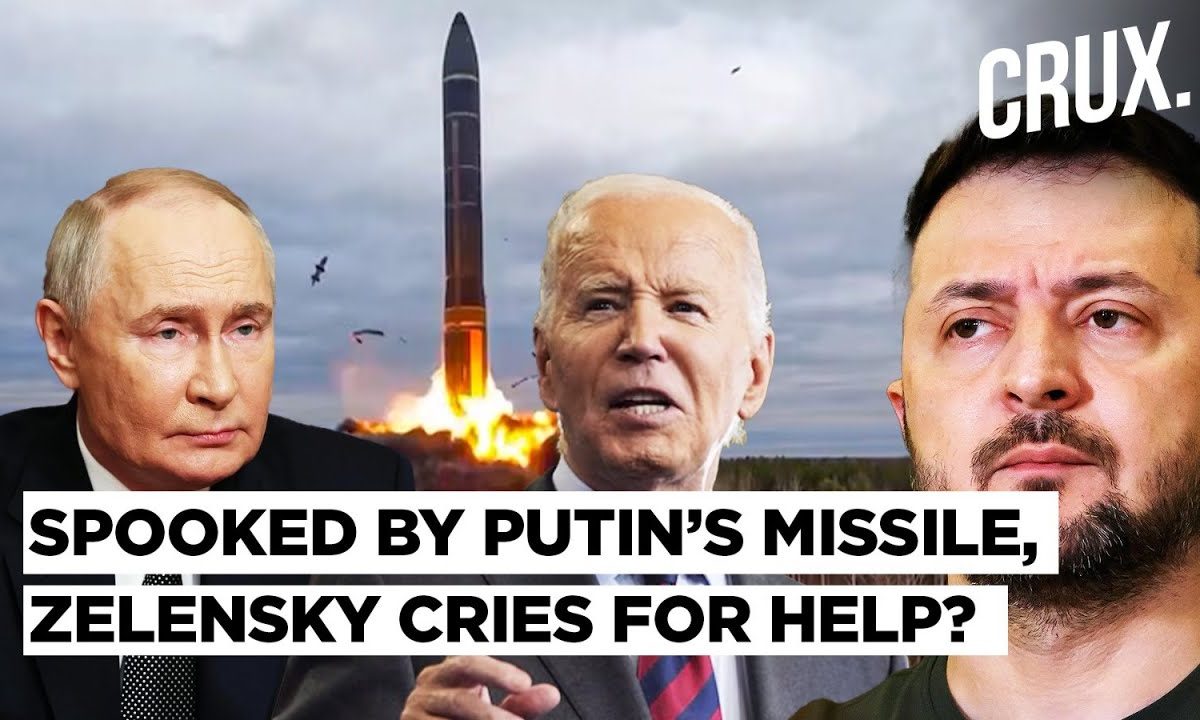Last Updated:November 06, 2024, 15:03 IST
Former US President Donald Trump on Wednesday beat his rival Kamala Harris to win the US presdiential race and return to the White House for a second term

When it comes to the Middle East, Donald Trump has been surprisingly mercurial. (News18)
Former President Donald Trump, who looks all set to storm back to power in the US presidential elections after sweeping key battleground states, has stuck to one rhetoric ever since the October 7 Hamas attacks — the incident “would never have happened" on his watch.
When it comes to the Middle East, Trump has been surprisingly mercurial. While he has called for Israel to end its war in Gaza without offering a cease-fire plan, the Republican has also suggested that he is open to renewed talks with Iran about a nuclear agreement that he had ended.
Before one looks at the way ahead for the Trump administration, let’s take a look at where relations with Middle East stood when Trump vacated office in 2021.
Trump’s son-in-law Jared Kushner helped produce a Palestine-Israel peace plan which was formally unveiled in 2020 during a press conference at the White House between Trump and Israeli Prime Minister Benjamin Netanyahu. The Palestinians had rejected the plan, and were hence not party to the event. According to Arab Centre Washington DC, the scheme “described a truncated Palestinian entity, lacking critical aspects of sovereignty, that would be highly contingent on Israeli political and security conditions as well as military oversight. The plan gained little traction among any of the parties and sank without a trace".
Over the years of his presidency, Trump remained close to Netanyahu, with the latter even putting up an enormous poster of the two together on a building in Tel Aviv during his re-election campaign in 2019. It was no surprise then that Netanyahu wished his friend on his success in the 2024 polls, calling it “history’s greatest comeback".
“Dear Donald and Melania Trump, Congratulations on history’s greatest comeback! Your historic return to the White House offers a new beginning for America and a powerful recommitment to the great alliance between Israel and America. This is a huge victory! In true friendship, yours, Benjamin and Sara Netanyahu," he wrote on X.
Trump, in the last few weeks, has made limited criticism of Israel’s war efforts in Gaza, saying that Israel is “losing the PR war". However, he has continued to posit himself as a better friend to Israel than Joe Biden or Kamala Harris.
The Trump administration also significantly shifted the American policy towards Iran. In 2018, Trump formally abandoned the multilateral Iran nuclear deal, known as the Joint Comprehensive Plan of Action, or JCPOA, which was negotiated by the Obama administration, the P5+1, and the European Union to freeze Iran’s nuclear programme. Citing flaws in the agreement, Trump withdrew US support, leading Iran to withdraw from its obligations in the agreement as well.
The foreign policy saw a series of flip-flops as the former president either threatened military action or promised Tehran deals to solve issues between the two countries — often leaving Iran as well as US allies confused about his intentions.
This inevitably led to an increase in the hostilities between the United States and Iran to the point of a proxy war that saw strikes against US military facilities in the region and counterstrikes by the United States, including the assassination of Iranian Quds Force Commander Qassem Soleimani in a 2020 drone strike in Baghdad. Meanwhile, Iran accelerated its programme to produce more highly enriched uranium, which is essential for the production of nuclear weapons, and is now closer to a nuclear weapons capability than ever.
When it came to the Gulf, Trump admitted the transactional nature of his relationship with the states. He famously refused to cut arms sales to Saudi Arabia in the wake of its October 2018 Jamal Khashoggi killing on the grounds that if the United States fails to supply arms to Gulf allies, Russia and China will.
His business acumen may have kept his eyes on the goal — oil and arms — but when it came to Gulf defence, Trump was yet again unpredictable.
A September 2019 attack on Saudi oil facilities, claimed by Yemen’s Houthi movement but likely launched by Iran, was met by general indifference from Trump, who announced he was “locked and loaded" for a response but later claimed he did not want war. According to Arab Centre Washington DC, other Gulf governments have privately questioned Trump’s commitment to their defence, and while they seem to prefer his electoral win, they are unsure of the benefits it will accrue.
What can regime 2.0 witness?
Trump is likely to give a free hand to Israel to solve its conflicts in any way it sees fit. In a private conversation in July, he allegedly asked Netanyahu to wrap up the Gaza war before his inauguration — mostly for the optics. While he will encourage other Arab states to provide financial and humanitarian aid, it is unlikely that Trump will allow deeper US involvement in the territory’s governance or economic future.
On Iran, Trump may continue to side with Netanyahu and other regional leaders who might advocate for an aggressive US approach to Iran and its nuclear programme, including the possibility of military action. However, the election this past summer of a new Iranian president who seems to want engagement with the West may give him something to think about.
With the Gulf, Trump’s transactional approach is likely to continue, emphasising arms sales, business deals, and security and counterterrorism cooperation, while largely ignoring more nuanced or values-based political and diplomatic engagement.
In conclusion, a second Trump administration would most likely add an element of uncertainty to formerly stable relationships in the Middle East, further unhinge decades of US policy on the Palestine-Israel conflict, and increase the chances of a US-Iran military confrontation.
(With inputs from foreign agencies)
Location :United States of America (USA)
First Published:November 06, 2024, 15:03 IST
News world Back In The Saddle, How Will Donald Trump Navigate Unstable Middle East?

 2 weeks ago
2 weeks ago


















